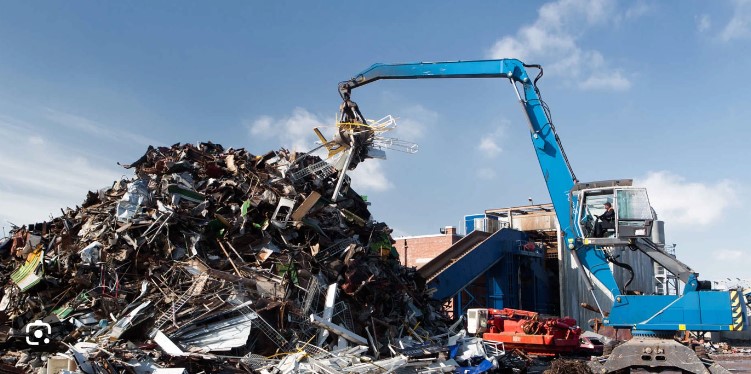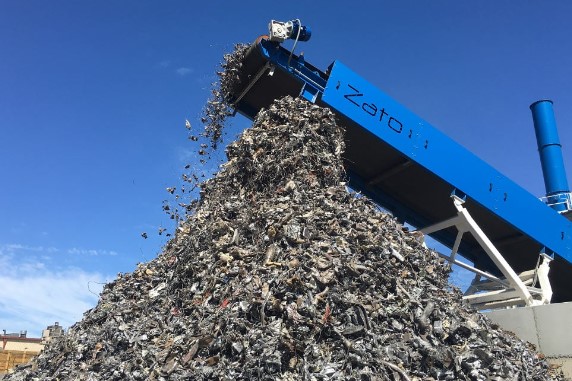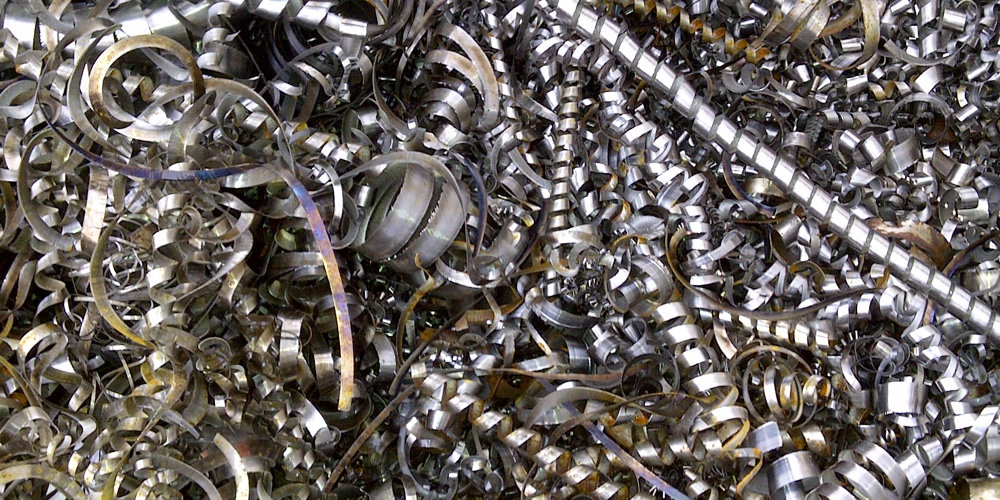The Challenges Scrap Metal Recycling
There are numerous challenges in the scrap metal recycling process. These include but not limited to challenges with collecting, processing techniques, economic, environmental, technological, social and others.
Scrap metal recycling plays and important role in reducing landfill waste and conserving natural resources. The recycling process involves collecting, sorting, and processing scrap metals to produce recycled metals that can be reused in various industries.
This process not only helps in reducing environmental impact but also supports a sustainable future. However, the scrap metal recycling industry faces numerous challenges that hinder its efficiency and effectiveness. In this article, we will look the significant challenges faced by the metal recycling industry and potential solutions to overcome these obstacles.
Below is a basic table outlining the challenges. We will then look at each in more detail.
| Challenge | Description |
|---|---|
| Collection and Sorting | Difficulty in collecting and sorting scrap metals due to contaminants and labor-intensive processes. |
| Processing Techniques | High energy consumption, safety risks, and complex refining processes in metal recycling. |
| Economic Challenges | Fluctuating metal prices, high operational costs, and competition with virgin metal production. |
| Environmental and Regulatory Issues | Environmental impact from improper handling and energy-intensive processes, and the need for regulatory compliance. |
| Technological Advancements | Necessity for investment in new technologies to improve efficiency and reduce environmental impact. |
| Social and Ethical Considerations | Health and safety risks for workers, and the need for ethical sourcing and fair labor practices. |

Collection and Sorting
One of the biggest challenges in the scrap metal recycling industry is the collection and sorting of metal waste. The collection process involves gathering metal scrap from various sources, including old appliances, construction sites, and industrial waste. Sorting these waste materials is crucial to ensure that the recycling stream is free from contaminants and that the recycled products are of high quality.
Metal recyclers use different methods to sort scrap metals, such as manual sorting, magnetic separation for ferrous metals like steel, and advanced technologies for non-ferrous metals like copper and aluminum. However, these methods can be labor-intensive and costly. Additionally, the presence of contaminants like paint, plastics, and other non-metallic materials can complicate the sorting process and reduce the quality of recycled materials.
Preventing contamination and improving sorting efficiency are critical for producing high-quality recycled metal.
Processing Techniques
Once the scrap metal is collected and sorted, it must be processed to produce recycled metal. This involves several steps, including shredding, melting, and refining. Each of these steps presents its own set of challenges.
Shredding is the first step in the processing of scrap metals. It reduces large pieces of metal into smaller fragments, making it easier to handle and process. However, shredding can generate significant amounts of dust and noise, posing health and safety concerns for workers.
Melting the shredded metal requires high-energy inputs, contributing to greenhouse gas emissions. The refining process involves removing impurities to produce high-quality recycled metal, which can be complex and costly.
Innovative solutions are needed to make these processes more efficient and environmentally friendly. For example, advancements in technology such as induction furnaces can reduce energy consumption and emissions during the melting process. Additionally, improved refining techniques can help produce higher quality recycled metals with fewer impurities.

Economic Challenges
The economic challenges of the metal recycling industry are significant. The profitability of scrap metal recycling is heavily influenced by market fluctuations in the prices of metals. When prices are low, metal recycling companies may struggle to cover their operational costs. The cost of collecting, sorting, and processing scrap metal can be high, and the revenues generated from selling recycled products may not always be sufficient to make the process economically viable.
Another economic challenge is the competition with virgin metal production. Producing new metal materials from iron ore and other raw materials can sometimes be cheaper than recycling, especially when market conditions are unfavorable. Recycling metal needs to be cost-competitive to encourage more businesses to adopt eco-friendly practices.
Environmental and Regulatory Issues
Environmental challenges are a major concern for the scrap metal recycling industry. The recycling process can have negative impacts on the environment if not managed properly. For example, improper handling of metal waste can lead to soil and water contamination. Additionally, the energy-intensive nature of metal recycling contributes to climate change through the release of greenhouse gases.
Regulatory compliance is essential to mitigate these environmental impacts. Recycling facilities must adhere to strict regulations regarding emissions, waste disposal, and worker safety. Ensuring compliance can be challenging, particularly for smaller recycling facilities that may lack the resources to invest in the necessary equipment and processes.
Public awareness and education about the importance of recycling metal and the challenges faced by the industry can help drive support for stricter regulations and more sustainable practices. Governments and industry organizations need to work together to develop policies that encourage metal recycling and provide support for recycling facilities to meet regulatory requirements.
Technological Advancements
Advancements in technology offer promising solutions to some of the challenges faced by the scrap metal recycling industry. Innovations in automation and artificial intelligence (AI) can improve the efficiency of collection, sorting, and processing.
For example, automated sorting systems that use AI and machine learning can identify and separate different types of metals more accurately and quickly than manual methods. These systems can also help reduce contamination and improve the quality of recycled materials. Additionally, advancements in shredding and melting technologies can reduce energy consumption and emissions, making the recycling process more environmentally friendly.
Investment in research and development is crucial to drive these technological advancements. Metal recycling companies need to stay at the forefront of innovation to remain competitive and meet the growing demand for recycled metals.
Social and Ethical Considerations
The social and ethical issues related to scrap metal recycling are often overlooked but are equally important. The industry relies on a significant amount of manual labor, which can involve health and safety risks. Workers in recycling facilities may be exposed to hazardous materials and dangerous working conditions.
Ensuring fair labor practices and safe working environments is essential for the sustainable future of the metal recycling industry. This includes providing adequate protective equipment, training, and ensuring compliance with health and safety regulations. Ethical sourcing of scrap metals is also important to prevent the exploitation of vulnerable communities and ensure that the materials used in the recycling process are obtained in a responsible manner.
Final Points
The scrap metal recycling industry faces numerous challenges, from the collection and sorting of scrap metals to the processing, economic, environmental, technological, and ethical issues. Addressing these challenges requires a multifaceted approach involving technological innovation, regulatory compliance, public awareness, and industry collaboration.
By overcoming these obstacles, the metal recycling industry can play a crucial role in conserving natural resources, reducing greenhouse gas emissions, and promoting a sustainable future. It is essential for metal recycling companies, governments, and the public to work together to support and improve the scrap metal recycling process for the benefit of future generations.

